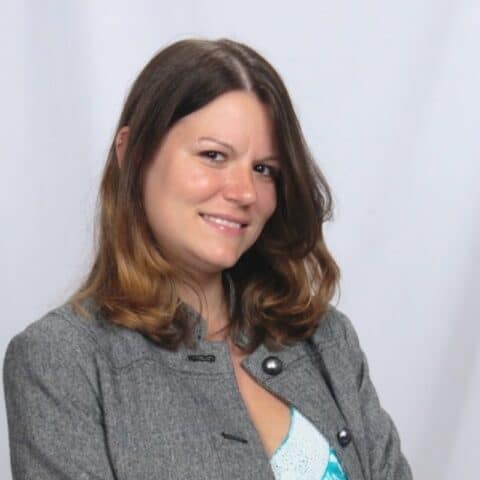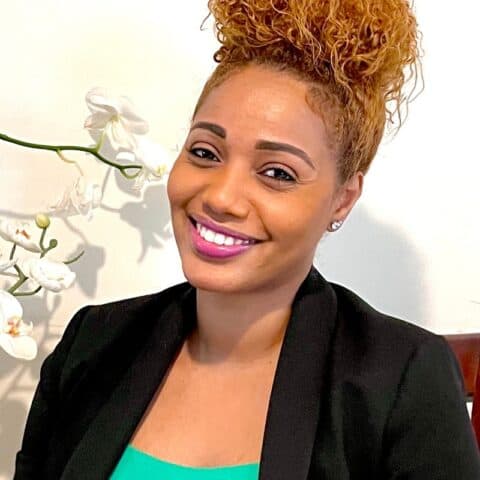What is ADHD?
At Darby Integrative Counseling, we understand that ADHD can significantly impact your daily life.
Our experienced team recognizes the core symptoms of inattention, hyperactivity, and impulsivity that characterize this condition.
We’re committed to helping you navigate the challenges ADHD presents in various settings, whether at work, school, or in personal relationships.
Our integrative approach addresses not only symptom management but also builds on your strengths to improve overall functioning and quality of life.
If you’re struggling with ADHD, we’re here to provide the support and strategies you need to thrive.
Types of ADHD
At Darby Integrative Counseling, we recognize that ADHD presents differently in each individual.
If you’re experiencing symptoms of inattentive ADHD, we can help you develop strategies to improve focus, enhance organization skills, and increase task completion.
For those struggling with hyperactive/impulsive ADHD, our team offers tailored approaches to manage restlessness, control impulsivity, and improve patience in various situations.
We’re committed to providing personalized care that addresses your specific ADHD type and its impact on your daily life.
Inattentive Type
What does it mean to have the inattentive type of ADHD?
If you’re diagnosed with inattentive ADHD, you’ll often struggle to focus, complete tasks, and stay organized. This type is common in adults with ADHD.
Cognitive behavioral therapy can help you manage symptoms by teaching strategies to improve attention and organization.
Unlike the hyperactive type, you’re less likely to be disruptive but may appear distracted or forgetful.
Hyperactive/Impulsive Type
While inattentive ADHD often flies under the radar, the hyperactive/impulsive type is more noticeable.
If you’re dealing with childhood ADHD of this type, you’ll likely observe:
- Excessive movement and fidgeting
- Difficulty waiting for turns
- Frequent interruptions or blurting out answers
ADHD therapy for hyperactivity and impulsivity focuses on managing these symptoms.
You’ll work with specialists to develop strategies that help control impulsive behaviors and channel excess energy productively.
Causes
Despite years of research, the exact causes of ADHD remain elusive. Scientists believe that a combination of factors contributes to the development of this disorder. Genetics play a significant role, as ADHD tends to run in families. If you have a close relative with ADHD, you’re more likely to develop it yourself.
Brain structure and function also appear to be involved. Studies have shown that children with ADHD may have differences in certain brain regions compared to those without the disorder. These anatomical variations could affect attention, impulse control, and hyperactivity.
Environmental factors might contribute as well. If you were exposed to toxins during pregnancy, such as alcohol or tobacco smoke, your risk of developing ADHD may increase. Low birth weight and maternal stress during pregnancy have also been linked to a higher likelihood of ADHD.
It’s important to note that while these factors are associated with ADHD, they don’t necessarily cause it. The disorder likely results from a complex interplay of genetic, neurological, and environmental influences.
Understanding these potential causes can help guide research into more effective treatments and interventions for those affected by ADHD.
Symptoms
How can you recognize ADHD? Attention-Deficit/Hyperactivity Disorder manifests through persistent patterns of inattention, hyperactivity, and impulsivity that interfere with daily functioning and development.
These symptoms must be more severe than expected for a child’s age and cause significant impairment in multiple settings, such as home, school, or social environments.
There are three main types of ADHD:
- Inattentive type
- Hyperactive/impulsive type
- Combined type
For a diagnosis, symptoms must persist for at least six months and begin before age 12. Inattentive symptoms include difficulty focusing on details, maintaining attention, and organizing tasks.
You might notice your child often losing important items or appearing easily distracted. Hyperactive/impulsive symptoms involve excessive movement, fidgeting, and talking.
Your child may struggle to play quietly or wait their turn.
It’s essential to understand that ADHD symptoms aren’t attributed to defiance or lack of understanding. They’re consistent across different environments and can’t be explained by other mental disorders.
If you suspect ADHD, consult a healthcare professional for a thorough evaluation, as symptoms can overlap with other conditions.
Adult ADHD
Many adults with ADHD continue to experience symptoms that can greatly impact their daily lives. If you’re an adult with ADHD, you might struggle with organization, time management, and maintaining focus on tasks. These challenges can affect your work performance, relationships, and overall quality of life.
To address adult ADHD, you’ll need a thorough evaluation that includes a review of your symptoms and medical history. Treatment options typically involve a combination of medication and psychotherapy. Behavioral management strategies can help you reduce distractions and improve organization in your daily routines.
It’s important to know that ADHD is recognized as a protected disability under the ADA and Rehabilitation Act. This means you may be eligible for accommodations in the workplace or educational settings.
ADHD in Children
ADHD frequently affects children, with approximately 8.4% of kids diagnosed with this condition. It’s characterized by symptoms of inattention, hyperactivity, and impulsivity that can greatly impact a child’s academic and social functioning.
If you’re a parent or caregiver, it’s important to understand that ADHD symptoms must be more severe than expected for the child’s age and cause impairment in multiple settings.
There are three main types of ADHD in children:
- Inattentive type
- Hyperactive/impulsive type
- Combined presentation
For a diagnosis, symptoms must persist for at least six months and onset before age 12. Children with ADHD may struggle with paying attention to details, maintaining focus, and completing tasks.
They might also exhibit excessive movement, fidgeting, and difficulty playing quietly. It’s vital to seek a thorough evaluation to differentiate ADHD from other conditions.
Treatments typically combine behavioral strategies and medication, especially for preschool-aged children.
Therapies for ADHD
At Darby Integrative Counseling, we offer a range of effective therapies for individuals seeking ADHD treatment.
Our skilled therapists are experienced in Cognitive Behavioral Therapy (CBT), which can help you develop personalized strategies to manage your ADHD symptoms and improve daily functioning.
We also provide Dialectical Behavior Therapy (DBT), an approach that teaches valuable mindfulness skills and emotional regulation techniques to better cope with ADHD-related challenges.
Our goal is to work closely with you to find the most suitable therapeutic approach for your unique needs and help you achieve lasting positive changes in your life.
Cognitive Behavioral Therapy for ADHD
Cognitive Behavioral Therapy (CBT) stands out as an essential non-pharmacological treatment for ADHD. This therapy helps you develop strategies to manage your symptoms and improve your daily functioning. CBT focuses on identifying negative thought patterns and behaviors associated with ADHD, then replacing them with more positive and productive ones.
During CBT sessions, you’ll work with a therapist to:
- Develop time management and organizational skills
- Learn techniques to reduce distractibility and improve focus
- Create strategies for controlling impulsive behaviors
This therapy can help you build self-esteem, improve relationships, and enhance your overall quality of life.
CBT for ADHD is typically short-term, lasting between 10 to 20 sessions. However, the skills you’ll acquire during therapy can be applied long after your sessions end, providing ongoing benefits in managing your ADHD symptoms.
Dialectical Behavior Therapy for ADHD
Along with cognitive behavioral therapy, dialectical behavior therapy (DBT) has emerged as another effective treatment for ADHD. Originally developed for borderline personality disorder, DBT has been adapted to address the unique challenges faced by individuals with ADHD.
DBT focuses on four key areas: mindfulness, distress tolerance, emotion regulation, and interpersonal effectiveness. These skills can help you manage ADHD symptoms more effectively. Mindfulness teaches you to stay present and focused, counteracting inattention. Distress tolerance helps you cope with overwhelming emotions and impulsivity. Emotion regulation techniques allow you to better understand and manage your feelings, which can be particularly volatile with ADHD. Interpersonal effectiveness improves your communication and relationship skills, often impacted by ADHD symptoms.
In DBT sessions, you’ll learn practical strategies to apply these skills in your daily life. You might practice mindfulness exercises, role-play social situations, or develop personalized coping strategies for difficult emotions.










